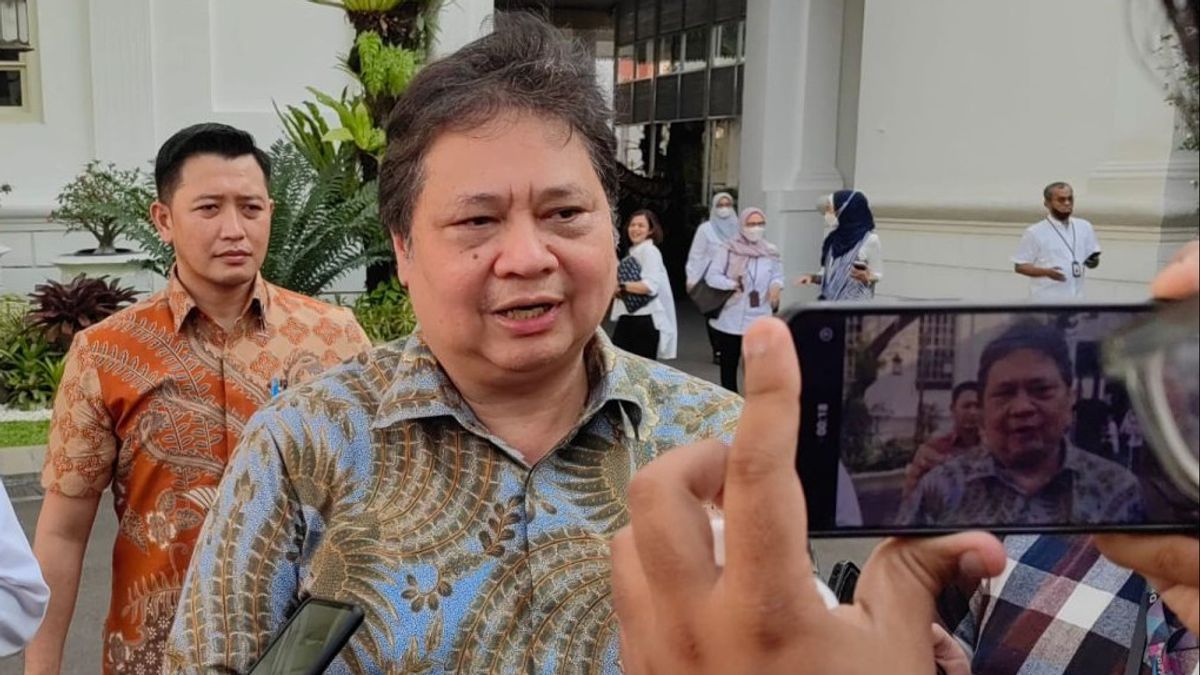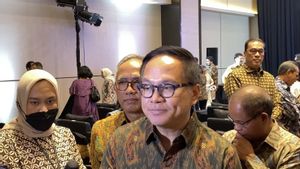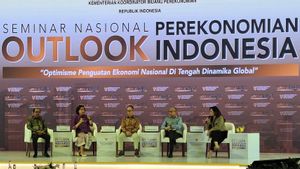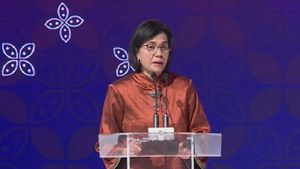
Coordinating Minister for Economic Affairs Airlangga Hartarto assessed that Indonesia's debt was still quite under control at around 38.11 percent of Gross Domestic Product (GDP) or IDR 8,041 trillion in November 2023.
"Of course we will see (the ratio) of our debt remains below 40 percent, the lowest compared to developed countries which are even above 100 percent of other developing countries. So this relative is still being careful," said Airlangga on the sidelines of the National Seminar for the Economy. Outlook Indonesia, Friday, December 22.
Meanwhile, when referring to Law Number 1/2003 concerning State Finances, the maximum limit for the ratio of government debt to GDP is set at 60 percent.
According to Airlangga, the current percentage is still far below the regulations governing that the allowed debt is 60 percent of GDP.
Previously, the World Bank released the latest data related to debt to developing countries. The report concluded the position of developing countries that may be hit by a crisis due to debt.
In detail, developing countries spent $443.5 billion to pay off public debt and public guarantees in 2022. This increase in spending also shifts important needs such as health, education, and the environment.
Meanwhile, debt payments, including principals and interest, increased by 5 percent compared to the previous year in all developing countries. This happened when the high interest rate era hit the world.
Airlangga said the debt had been well used, especially for infrastructure development and provided notes related to the High Incremental Capital Output Ratio (ICOR).
"We can still fix it, but of course this requires extra effort. This means that the management of the management of the government, whether carried out by private SOEs, must be even better, one of the factors is the transportation factor and we must remember archipelagic countries, and there is no archipelagic country as big as Indonesia," he said.
Furthermore, Airlangga conveyed the importance of infrastructure development, in order to reduce logistics and transportation costs.
"We have a target for transportation and logistics, maybe by 2030 we will still have 12 percent, but in 2045 we hope it will decrease to 8 percent," he explained.
Airlangga said he was quite optimistic about Indonesia's 2023 economic growth which would continue to be maintained at the level of 5 percent and grew 5.2 percent in 2024.
Even now, various risks are faced that cause the global economy to weaken.
"In the midst of global uncertainty, Indonesia's economic fundamentals are still maintained. Indonesia's economy has grown stable in the range of 5 percent and is above the growth of developed and developing countries," he said.
관련 항목:
In addition to maintained economic growth, Airlangga said, the inflation rate was still under control, as reflected in the inflation record which continued to show a decline from January 2023 of 5.28 percent, then to the 4 percent level in May 2023, and to only 2.86 percent in November 2023.
"Indonesia is one of the countries that has succeeded in returning inflation to its target," said Airlangga.
The English, Chinese, Japanese, Arabic, and French versions are automatically generated by the AI. So there may still be inaccuracies in translating, please always see Indonesian as our main language. (system supported by DigitalSiber.id)















